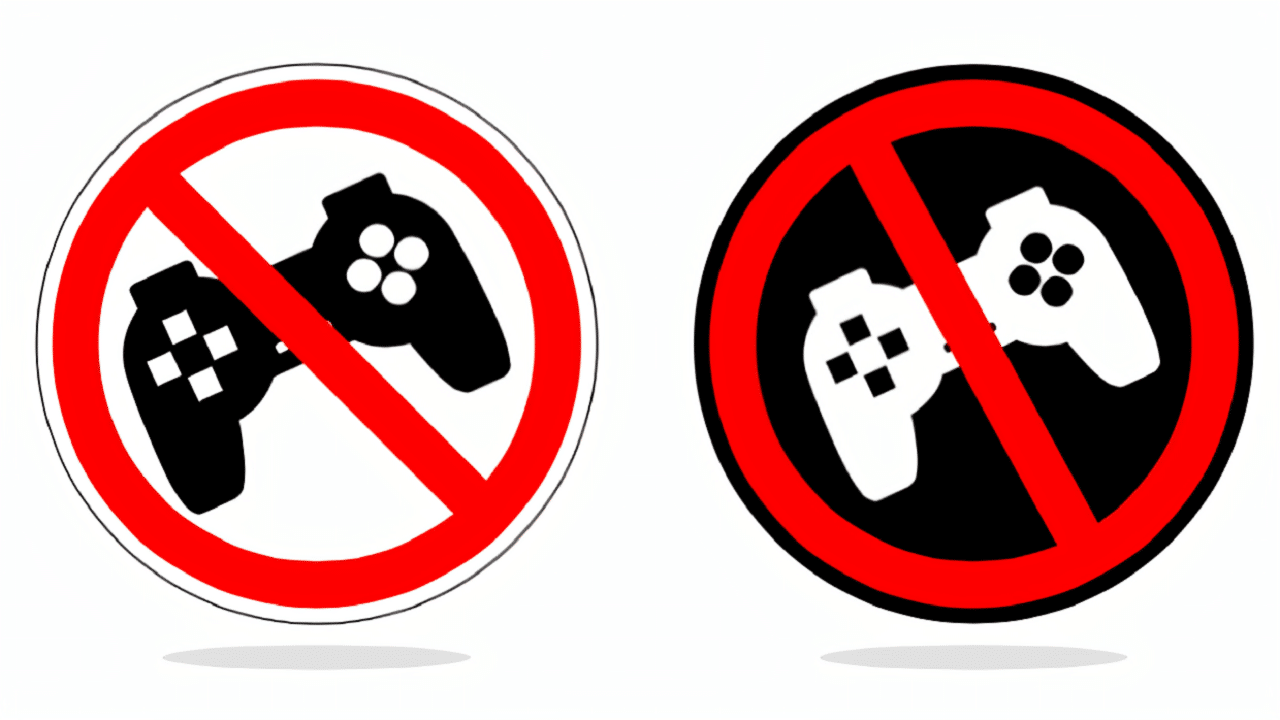In the early hours of June 7th, 2003 Devin Moore, an 18-year-old living in Fayette, Alabama, shot and killed three members of the local police force.
Moore had been been brought into the Fayette station on suspicion of stealing a car. While in custody, Moore got hold of officer Arnold Strickland’s gun. He shot Strickland twice, once in the head, and made to escape the police station. Officer James Crump heard the shots and met Moore in a hallway leading to the police station’s entrance. Moore shot Crump three times, including one shot to the head. He then went to the dispatcher’s office and shot Leslie Mealer five times, again including a shot to the head. Moore stole a police car from the station’s garage and fled.
Within hours Fayette police caught up with Moore and arrested him. He’s reported to have said "Life is like a video game. Everybody's got to die sometime.”
These brutal murders were quickly linked to Grand Theft Auto: Vice City by the media after it was discovered Moore had spent hundreds of hours playing Rockstar’s open world shooter. This is the case that made lawyer Jack Thompson’s name and it’s also the case that is the central focus of the BBC drama airing tonight: The Gamechangers (pictured above). The film casts Bill Paxton as Miami-based lawyer Jack Thompson in his suit against Take-Two Interactive and Sony. It also stars Daniel Radcliffe as Sam Houser, a co-founder of Rockstar Studios who wrote and produced the games.
The Moore case was large and complex, and it was far from the first time Thompson had tried in court to link video game violence (and other media) to real world crimes. Over the course of 20 years, Thompson has variously pursued a radio station, a state attorney, rap and pop music and pornography, as well as the games industry. This is a history of his career.
A Radio DJ and a Run for Office
In 1987 Thompson worked to have the FCC fine WIOD radio station $10,000 for airing obscene songs after one of its DJs, Neil Rogers, played parody songs, such as Uncle Bonzai’s ‘Boys Want Sex in the Morning’.
But, as would become a trend with Thompson, the case soon became more complex. According to an article published in ABA Journal, Thompson wrote a letter to the station after hearing Rogers “soliciting homosexual listeners to come with him on a vacation to Hawaii.”
On receiving Thompson’s letter, the station broadcast Thompson’s name, address, and phone number. And in what sounds eerily familiar to what’s going on in the games industry at the moment, Thompson says in the ABA Journal article: “I immediately received death threats and bomb threats.” Someone left a target shot full of holes on his lawn, people made appointments for him at urologists and rectal surgeons all over Miami, and a realtor came to his house to try and sell the property.
Thompson sued Rogers for invasion of privacy but also contacted the station’s advertisers to try and have them drop their support, so the station counter-sued. The pair settled with the agreement that the station would stop broadcasting references to Thompson - but they didn’t stop. Thompson claims that the station referred to him more than 40,000 times after the settlement and owed him $5,000 for each reference.
Separately, according to an article in Billboard’s December, 1990 issue, the state of Florida assigned a special prosecutor to investigate Rogers’ broadcasts. The prosecutor found that "it was clear that Mr. Thompson appears to have an obsessional hatred of Mr. Neil Rogers and his radio show. Mr. Thompson infers crimes and deviant sexual practices where others do not perceive them."
The Florida Bar asked Thompson to submit to a mental examination in 1990 after numerous complaints about his tactics. The psychologist found he was not suffering from instability.
Thompson tried to get Dade County state attorney Janet Reno to prosecute the radio station, something she was unwilling to do. So, in 1988, Thompson ran against her for the position of state attorney.
According to Billboard August, 1990 issue, ahead of a debate with Reno, Thompson slipped her a note saying "I, Janet Reno, am a [check one] homosexual, bisexual, heterosexual." The letter continued, "If you do not respond by [a date four days later], then you will be deemed to have checked one of the first two boxes."
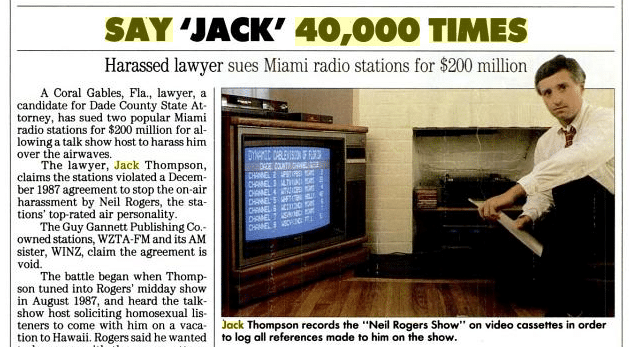
After reading the letter, Reno placed a hand on Thompson’s shoulder and said "I'm only attracted to virile men, which is why I'm not attracted to you." Thompson filed battery charges against her. Speaking to Nightline in 2006, he said "She grabbed a hold of me and shook me. She didn't hurt me, but I was annoyed. I was angry that she dealt with it in that fashion, and that was a mistake, I shouldn't have done that. But I'm glad. … I think it was reasonable to ask her the question." Miami police investigated the incident and concluded that no battery took place and that Thompson had made the claim as a “political ploy”.
Thompson later claimed that a group Reno was a board member of was placing “homosexual-education tapes” in schools and that Reno “is a dangerous woman and a ruthless politician. She's got a file of smears on Jeb Bush [second son of the first President Bush, currently running to be the Republican presidential candidate] and she won't hesitate to use it”.
The Florida Bar asked Thompson to submit to a mental examination in 1990 after numerous complaints about his tactics. The psychologist found he was not suffering from instability, which Thompson says makes him "the only officially certified sane lawyer in the entire state of Florida".
Nasty As They Wanna Be
Thompson’s next campaign targeted 2 Live Crew’s As Nasty As They Wanna Be. In 1990, after failing to convince Reno to investigate whether the album broke obscenity laws, Thompson went into shops with a 16-year-old to see if the store would sell the album to a minor. He would then contact the authorities and store owners to get the album pulled from shelves or restricted to 18 and over.
Thompson wrote a letter in Billboard’s December, 1990 issue, explaining why he campaigned against what he saw as obscenity. He argued that it was on the industry to self-censor or the government would do it for them: “which might make real artists the next victims of obscenity. An industry that says a line cannot be drawn will be drawn and quartered.”
Thompson had linked obscenity to abuse in court before. In 1985 he represented Iliana Fuster, a woman who was raped when she was 14 and whose husband had forced her to sexually abuse other children. “When I started researching the problem of sexual abuse, I found that one of the causes for it was obscenity, particularly obscenity that portrays people who are sexually abused as enjoying that abuse,” Thompson told The LA Times. “For me, that is what the disturbing component of this 2 Live Crew album is. People are always looking for some hidden agenda for my actions, but this is what has motivated me. It's not a question of musical taste."
As well as 2 Live Crew, Thompson went after N.W.A, Ice T, and even Madonna saying that their songs promoted sexual abuse, the objectification of women, and encouraged cop killing.
Thompson gets into Games
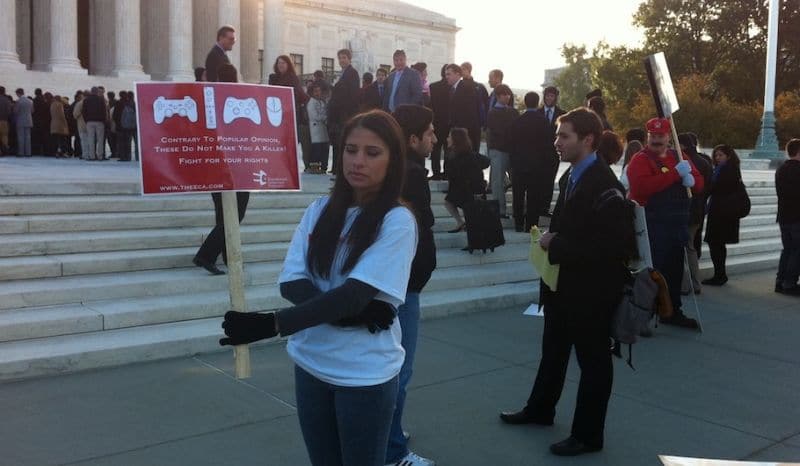
On December 1st, 1997 14-year-old Michael Carneal killed three students and injured five more at Heath High School in Kentucky. Carneal later pled guilty to the shootings. The investigation into Carneal found that he played Doom, Quake, Castle Wolfenstein, Redneck Rampage, Nightmare Creatures, MechWarrior, Resident Evil, and Final Fantasy.
Carneal’s crime saw Thompson begin his crusade against the games industry. In 1999, he, along with the parents of Carneal’s victims, filed a $130 million lawsuit against Nintendo, Sega, and Sony, along with Time Warner, Polygram, and two porn sites. Thompson claimed the games, films, and porn desensitised Carneal and caused him to kill his schoolmates.
''We intend to hurt Hollywood,'' Thompson told The New York Times. ''We intend to hurt the video game industry. We intend to hurt sex porn sites.''
Thompson tried to argue that the companies were responsible for distributing their “products” to Carneal and that the products’ violent features were “defects”, making the products defective, making the companies vulnerable to product liability law.
Games weren’t given First Amendment protection. The court simply said that Thompson was attacking them in the wrong way.
The court quickly dismissed Thompson’s suit, but in doing so it also made a point that would trouble games for the next 11 years: it refused to grant games First Amendment rights in the US. “Extending First Amendment protection to video games certainly presents some thorny issues,” the court wrote. “After all, there are features of video games which are not terribly communicative, such as the manner in which the player controls the game.
“The plaintiffs in this case, however, complain about none of those non-expressive features. Instead, they argue that the video game, somehow, communicated to Carneal a disregard for human life and an endorsement of violence that persuaded him to commit three murders. Because the plaintiffs seek to attach tort liability to the communicative aspect of the video games produced by the defendants, we have little difficulty in holding that the First Amendment protects video games in the sense uniquely relevant to this lawsuit. Our decision here today should not be interpreted as a broad holding on the protected status of video games, but as a recognition of the particular manner in which James seeks to regulate them through tort liability.”
Games weren’t given First Amendment protection. The court simply said that Thompson was attacking them in the wrong way.
***
On November 2nd, 2002, in Medina County, Ohio, 15-year-old Dustin Lynch killed his friend, 17-year-old JoLynn Mishne, by stabbing her in the side with a knife and bludgeoning her over the head with a bedpost. On the days leading up to Mishne’s murder, she and Lynch had spent time at her neighbour’s playing Grand Theft Auto III on the neighbour’s PlayStation. After Mishne’s murder the neighbour, Sara Matus, mentioned the game to the press and it became embroiled in the story. According to The Scene, Thompson called Mickey Mishne, JoLynn’s Mishne’s father and told him that GTA was why Lynch killed his daughter.
Thompson wasn’t able to enter the case on the side of Mishne because of the way the Ohio court system works, so instead, he tried to join the case on the side of Lynch. He also had Mickey Mishne pass the judge a note saying “the attorneys had better tell the jury about the violent game that trained this kid [and] showed him how to kill our daughter, JoLynn. If they don’t, I will.”
Prosecutor Dean Holman argued that because of Thompson’s relationship with Mickey Mishne, and their plans to file a civil suit following the criminal case, it would be inappropriate for Thompson to represent Lynch.
Thompson tried to get the judge presiding over the case, Judge Christopher Collier, to recuse himself from the case. In the end, Lynch himself asked that Thompson didn’t represent him as he didn’t want to make an insanity plea.
After Thompson left the case, The Scene was contacted by Lynch. In his letter he wrote: "Old man Mishne and whomever else believes that GTA III influenced me to brutaly [sic] kill JoLynn . . . they are all idiots! I killed JoLynn Mishne for my own personal satisfaction, not because of a video game.”
Thompson hadn’t been quiet about his motivations for suing: "I think the video game industry is about as evil as any entity in America is," Thompson told The Scene. "I'm out to take their money from them -- and it's blood money, in some of these instances -- and give it to the people who have been harmed by them."
In October 2003, Thompson tried to sue Take-Two Interactive for $246 million after two step-brothers, 16-year-old William and 14-year-old Joshua Buckner, fired shotguns at traffic. As with Lynch and Carneal, Thompson claimed the games had trained and caused the boys to fire at people.
"We want to send a message with a huge verdict to Sony and TAKE2interactive and the entire video game industry that if they're going to continue to market adult-rated games to children with these horrific consequence, then we're going to take their blood money from them and send a message to their boards that they have to stop this practice or there will be other suits on behalf of other people, killed by these games," Thompson told ABC News at the time.
As with Carneal, Thompson’s case was dismissed.
Devin Moore
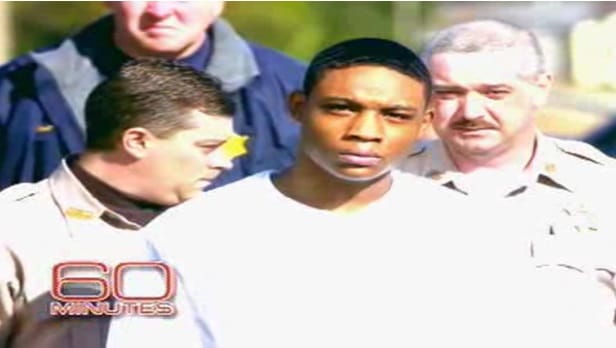
The way Thompson handles Devin Moore’s case is much like how he approached the cases laid out above, but in this case a lot of his tactics were finally called out by the judges and prosecution.
Although Moore had committed his crime before the Buckners, he wasn’t found guilty until August 11th, 2005. On August 12th, Thompson filed a suit against Take-Two Interactive and Sony.
Thompson had made his argument clear the year before when talking to 60 Minutes about Moore’s case. "What we’re saying is Devin Moore was, in effect, trained to do what he did. He was given a murder simulator. He bought it as a minor, he played hundreds of hours which is primarily a cop killing game. It’s our theory, that we think we can prove to a jury in Alabama, that but for the video game training he would not have done what he did.
“The video game industry gave him a cranial menu that popped up in the blink of an eye in that police station and that menu offered him the split second decision to kill the officers, shoot them in the head flee in the police car just as the game itself had trained him to do."
Shortly after filing suit, Thompson began sending out daily press releases to the media. The release he sent out on November 1st, 2005 was particularly controversial:
"This Thursday, November 3, 2005, at 1 pm the Alabama fireworks ignite in the Fayette County Courthouse. This may make the OJ Simpson trials look like quilting bees.
Defendants Sony, Take-Two/Rockstar, Wal-Mart, GameStop, and cop killer Devin Moore have all been sued for their respective roles in the June 2003 murder of two police officers and a dispatcher. The corporate defendants are nervous, and here's proof:
The primary strategy is to get Miami attorney Jack Thompson kicked off the case, alleging in court documents that he is 'paranoid' and cursed with a 'colorful history of disciplinary problems.' Forget that the referred to Bar complaints came 15 years ago from the porn industry and that Thompson has always been a 'lawyer in good standing with The Florida Bar' and 'officially certified sane' by The Bar after the ACLU and the radio pornographers last tried this nonsense.
That exoneration of Thompson did not stop Sony and Take-Two's law firm, Blank Rome (which has given more campaign contributions to the Republican National Committee than any other lobbyist - they are lead registered lobbyists on The Hill for Take-Two), from plunking down in front of Judge [James] Moore an order stating that Thompson may have a 'mental illness...'
Oh, and certain regional governments in Japan have banned the sale of the Grand Theft Auto games to minors, but Japan's Sony has no problem whatsoever dumping this garbage into American kids' brains. Looks like Pearl Harbor 2 by Sony/Take-Two.
Devin Moore himself has written Thompson explaining the role of the murder simulation games. The video game industry has no rebuttal to the scientific evidence, except to question the mental health of the lawyer who, with the rest of the legal team, filed the affidavits that have this scofflaw industry on the run.
It may well be that Thompson will be kicked off the case and/or that the case will be dismissed. Thompson is not as presumptuous as other lawyers who claim to know what an honorable judge in Alabama will do. If that happens, there are remedies, but in the meantime this case is a reasonable judicial means to rightly compensate three devastated families targeted by an out-of-control industry.
The most reckless video game company in the world, Take-Two, has been fined $9 million by the SEC for accounting fraud and is currently under investigation by the FTC for illegally embedding explicit sexual content in a Grand Theft Auto game sold to children. Thompson is unethical? This is a nuclear bomb calling a cap gun explosive.
Blank Rome questioning the ethics of Jack Thompson? One of its partners is Barbara Comstock, whom the Washington Post called a 'one-woman wrecking crew'... Ms. Comstock was on the staff of Indiana Senator Dan Burton back when he had a mistress illegally on his office's federal payroll and was also supporting an illegitimate child... Barbara Comstock's fingerprints are all over the false and defamatory character assassination of the lawyer who opposes her corporate clients' mental molestation of minors for money...
Stay tuned. You ain't seen nothing yet."
(Emphasis my own.)
GamePolitics contacted Thompson to clarify his statements about “Pearl Harbor 2”, saying that they could be construed as “Insensitive”. Thompson replied, saying "Insensitive? What the Japanese are doing to our kids is insensitive and racist. The Japanese have for a very long time dumped pornography into this country in a fashion they would not tolerate in their own country. It is another version of Pearl Harbor. [...] As for the offensiveness of the Pearl Harbor comment, it's accurate and it's needed. The Japanese have a contempt for our culture which is patent. There [sic] dumping of garbage into our culture is a slow motion version of Pearl Harbor.”
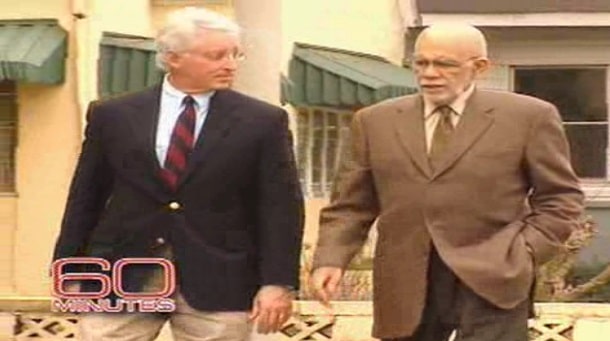
Thompson also wrote to Japanese ambassador Ryoko Kato to “respectfully request that your nation's government assist me in making this harmful distribution stop. [...] Japan cannot allow to be done to our children what it will not allow to be done to its own.”
On November 3rd, Blank Rome, the legal firm opposing Thompson’s suit on behalf of Sony and Take-Two, tried to have Thompson taken off the case. “All lawyers have to conduct themselves with honesty, integrity and civility,” Blank Rome’s Jim Smith said. “This isn’t a street fight. [...] He’s going to turn the courtroom into a circus and we can’t have it.”
Two days later, Thompson sent a letter to the judge in which he claimed his opponent, Jim Smith, “lied, to your face.” This was in regards to a comment Smith made, referring to Thompson’s “colorful disciplinary history.” Thompson says Smith exaggerated this claim. Thompson also took the opportunity to plug his book which he had “flashed in the courtroom”.
On November 7th, Thompson withdrew from the case, claiming that Blank Rome’s “strategy from day one has been to shoot the messenger and not deal with the companies and what they did. I’d do the same thing, because what they do is indefensible."
Thompson also said “I didn’t want him to have my personality and my presence in the case in any way effect [sic] the survivability and the merits of the case," Thompson said, explaining his withdrawal. “My job is to serve my clients and not for them, in some way, to serve me."
However, unlike previous cases where Thompson’s suits had been dismissed or his client had requested another lawyer, Judge James Moore wouldn’t let Thompson withdraw. Instead, on November 18th, Judge Moore published an 18-page letter that criticised Thompson’s behavior during the case, saying "Mr. Thompson's actions before this Court suggest that he is unable to conduct himself in a manner befitting practice in this state." Judge Moore then revoked Thompson’s temporary licence to work cases in Alabama courts.
So, in just over two weeks, Thompson went from representing the families of three murdered policemen in a fight against Sony and Take Two to having his licence to practice law in Alabama revoked. He’d withdrawn from the case within four days of it starting. From that point on the games industry which had regarded him as a threat to the future of games, as someone who could potentially see the medium banned, instead became a figure of fun.
That didn’t keep him out of the courtroom, though.
Rockstar was working on another game at the time, besides Grand Theft Auto: Bully. Thompson tried to get the game blocked from being sold in the US.
"It shows you how to -- by bullying -- take over your school,” Thompson told Ledger-Enquirer. “You punch people; you hit them with sling shots; you dunk their heads in dirty toilets. There's white-on-black crime in the game. You bludgeon teachers and classmates with bats. It's absolutely nuts.”
Thompson tried to sue retailers to get court orders barring them from selling the game. He ran rallies outside Rockstar’s US offices to draw attention to the game and have shops refuse to stock it on release. He even wrote a letter to the Tacoma Times that called out Bill Gates for allowing Bully to be released on Xbox, saying “Washington state has a commendable anti-school bullying law which took effect in 2003. How ironic, then, that a major employer in this state, Microsoft, is planning to dump into the hands of schoolchildren around the globe a game in which they can rehearse school bullying.”
Eventually, in November, 2006, Thompson managed to arrange a viewing of Bully ahead of release, with Take-Two demoing Bully to both Thompson and Judge Ronald Friedman.
"There's a lot of violence," Judge Friedman said after the demo. "A whole lot. [But] Less than we see on television every night."
Thompson disagreed. ''You did not see the game,'' Thompson told Friedman. "You don't even know what it was you saw."
In April, 2007, Friedman filed a complaint against Thompson to the Florida Bar. Friedman claimed Thompson said things like:
- “What you conducted in your chambers, Judge, was the equivalent of Iran leading UN weapons inspectors around the country taking them places where the illegal activity was not occurring.”
- “The behavior of this judge was abominable. which was made all the worse by the fact that he engaged in these childish antics in front of the media in the courtroom.”
- “Here’s a tip, Judge, I don’t just practice law. I save lives from reckless jurists like you.”
- “You missed the gay sex… I’m sure the voters are going to love that. Go ahead, Judge. File your bar complaint. Make my day.”
Two months before, in February, the Florida Bar began disbarment proceedings against Thompson. The 40-page brief referred to Thompson’s stream of complaint letters about Judge James Moore, who had taken him off the Devin Moore case, and Blank Rome, the law firm he opposed in Alabama. According to Information Week, there were letters of complaint directed to “the president, the U.S. attorney general, the Alabama Bar Association, a former Republican National Committee chairman and others, state that Thompson is being targeted in a conspiracy by several corrupt groups and individuals.”
The Bar required that any filings Thompson made in the meantime should be signed off by another lawyer.
On June 4th, 2008, after reviewing 2,400 pages of transcripts and 1,700 exhibits, Judge Dava Tunis found Thompson guilty of 27 of the 31 complaints set against him.
In a 169 page report of Tunis’ investigation, she concluded that she:
“finds no evidence whatsoever to indicate that the Respondent is amenable to rehabilitation, or even remotely appreciates the basis upon which a need or purpose for such rehabilitation is warranted. [...]
“Over a very extended period of time involving a number of totally unrelated cases and individuals, the Respondent has demonstrated a pattern of conduct to strike out harshly, extensively, repeatedly and willfully to simply try to bring as much difficulty, distraction and anguish to those he considers in opposition to his causes. He does not proceed within the guidelines of appropriate professional behavior, but rather uses other means available to intimidate, harass, or bring public disrepute to those whom he perceives oppose him.”
Tunis recommended that Thompson be permanently disbarred, preventing him from practicing law, and pay $43,000 in disciplinary costs. On September 25th, 2008, the court approved Tunis’ recommendation and ended Thompson’s legal career.
Thompson had been pursuing games since 1999 and in the decade that he spent trying to get violent games banned, to link them to violent crime, and to sue their makers for damages, he failed in every case. Every one of them was dismissed.
After Thompson had been disbarred, but tied to his campaigning, the Supreme Court did finally decide whether games were protected by the first amendment. On November 2nd, 2010 the courts ruled that games were protected. It brought an end to nearly two decades of campaigning to have games recognised as legal equals to other mediums and, with it, largely quieted the voices calling for games to be banned.
 CRIME Shirt $21.68 |
 |
 CRIME Shirt $21.68 |
